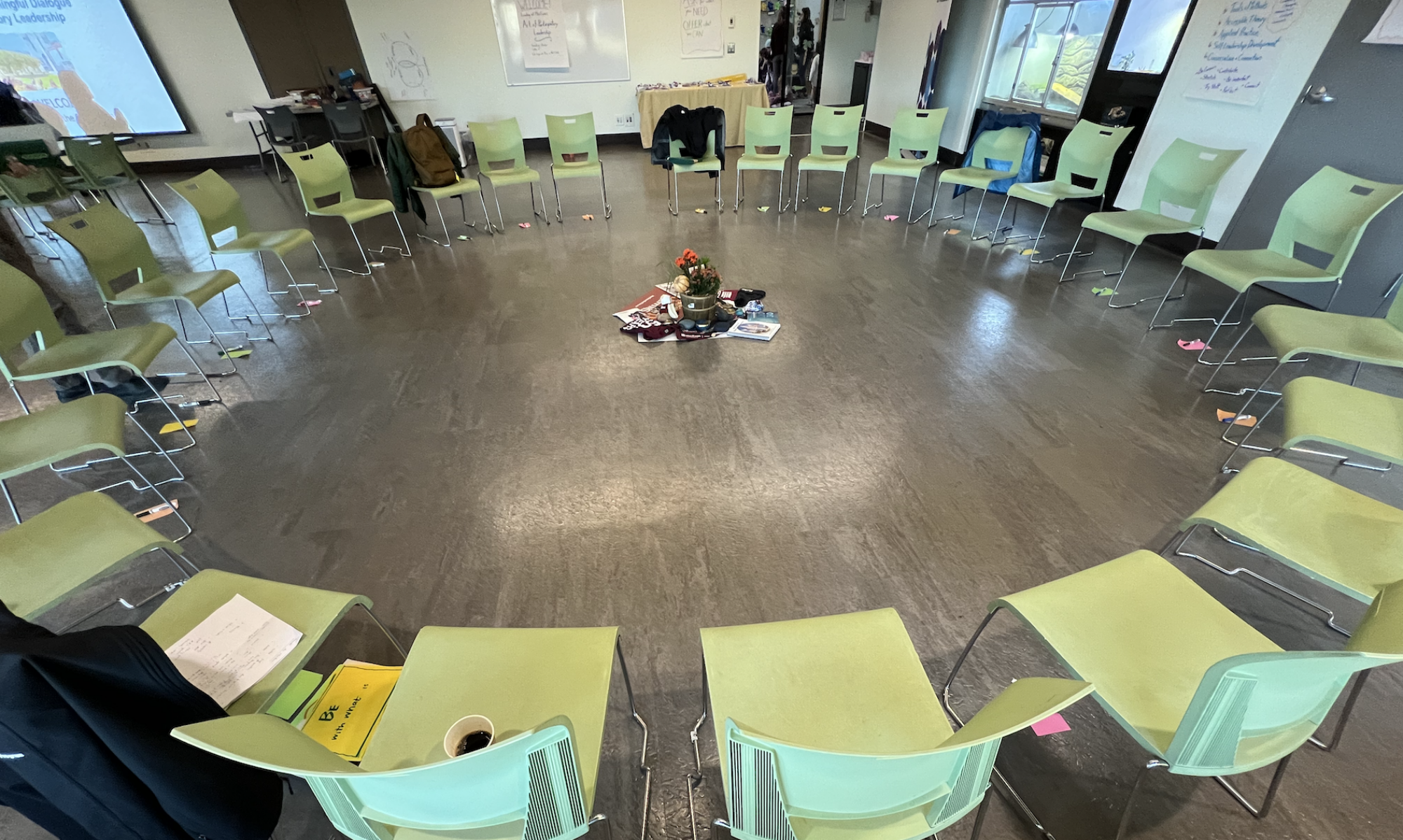Next week I’ll be Master Theme Weaver at the University of Saskatchewan’s Leadership Conference 2011. I’ve been working with some fantastic people in Saskatoon to create a sense of what this is. This includes a team of Theme Catchers, who will be attending sessions and trying to catch the gist of things. Together, we’ll all huddle up a few times in the “Imagination Station,” thankfully renamed such from “the War Room,” at the suggestion of my colleague, Shannon Floer. I’ll share some of those insights at the end of the conference in 45 minutes before closing remarks by the conference chair.
In the conference brochure, I described theme weaving this way: “Working with a team of theme-gatherers, Tenneson will offer a narrative thread on some of this year’s key conference ideas. Look for some poetry on everything from the practical to emerging insights. Look for an invitation to turn to each other, notice next steps, and with deliberateness, seal and close the experience of this year’s leadership conference learning.”
I’ve loved working with the conference team to identify some key points in catching themes. It has included emphasizing these points, all grounded in skills of noticing what emerges:
- Welcoming a Punchy Attitude — it is really a truth-telling tone. I’ve encouraged to participate and observe, looking for “what really happened?” There will be some exec summary kind of gathering. But I also want to hear from them what they would tell to a friend at the bar.
- You Don’t Have to Get It All — this is busting the myth that you have to capture everything and summarize it. Of course it means paying attention to what is important. However, it also mean freeing ourselves from the pressure of “if you don’t get it all, you don’t get anything.”
- Everything is an Offer — This is also the title of an improv / leadership book by Robert Poynton. It is another principle of freedom that I find helpful to invite the team to stay in their creativity in what they offer.
I’ve also offered these guidelines for how to do the above. They are similar, and are all about reading the energy and reaction in the room. For example, “Follow the Spark of Yes” — this is a noticing of what comes alive in the room during the presentations. Or, “Watch for What Resonates” — an invitation to notice points at which there is affirmation or recognition of what is being shared. Sometimes these are obvious because they are marked by laughter or a spike in energy.
We are giving each Theme Catcher a worksheet, inviting words and or images in response, as well as some time to sit in the Imagination Station to notice what themes are emerging.
1. What’s practical? (two or three issues relevant to what leaders do now)
2. What’s innovative? (two or three ideas that point to emerging paradigms in leadership)
3. What’s the headline? (for the story of this presentation)
4. What’s the connection? (this headline to the practice of conversational leadership)
5. What’s the vibe? (that you heard from participants)
6.What’s the gem? (that you’ll remember, really, in ten years)
Really looking forward to this. And I’m admiring the creativity and courage that the conference committee is showing to innovate their conference and the way that large conferences are convened.



